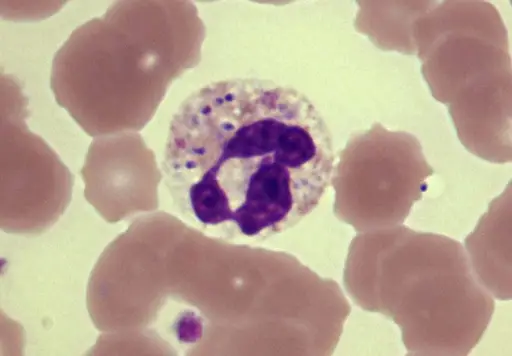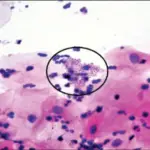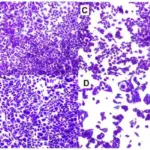Neisseria bacterial infection causes meningococcal disease. About 1 in 10 people have these bacteria in the back of their nose and throat without being ill.
What is the Pathology of Neisseria Bacterial Infection?
The pathology of neisseria bacterial infection is:
-Etiology: The cause of neisseria bacterial infection is bacteria, close contact with infected people.
-Genes involved: Not applicable.
-Pathogenesis: The sequence of events that lead to neisseria bacterial infection shows that gonococci attach primarily to columnar and cuboidal epithelium. After 24-48 hours, they penetrate between and through the cells to reach the submucosal tissues where they stimulate a marked neutrophilic response resulting in sloughing of the epithelium, microabscess formation, and the exudation of pus.
-Morphology: The morphology associated with neisseria Bacterial Infection shows gram negative, non-spore-forming, nonmotile bacterium.
-Histology: The histology associated with neisseria bacterial infection shows acute suppurative reaction, inflammation within mucosa and submucosa only.
How does Neisseria Bacterial Infection Present?
Patients with neisseria bacterial infection typically are all genders but mostly children with age less than 1 year old. The symptoms, features, and clinical findings associated with neisseria bacterial infection include nausea or vomiting, cold hands and feet, rapid breathing, fever, chills, and severe aches and pain.
How is Neisseria Bacterial Infection Diagnosed?
Neisseria bacterial infection is diagnosed by lab tests.
How is Neisseria Bacterial Infection Treated?
Neisseria bacterial infection is treated by antibiotics.
What is the Prognosis of Neisseria Bacterial Infection?
The prognosis of neisseria bacterial infection is fair. In women, the bacteria can spread into the uterus or fallopian tubes and cause pelvic inflammatory disease.



